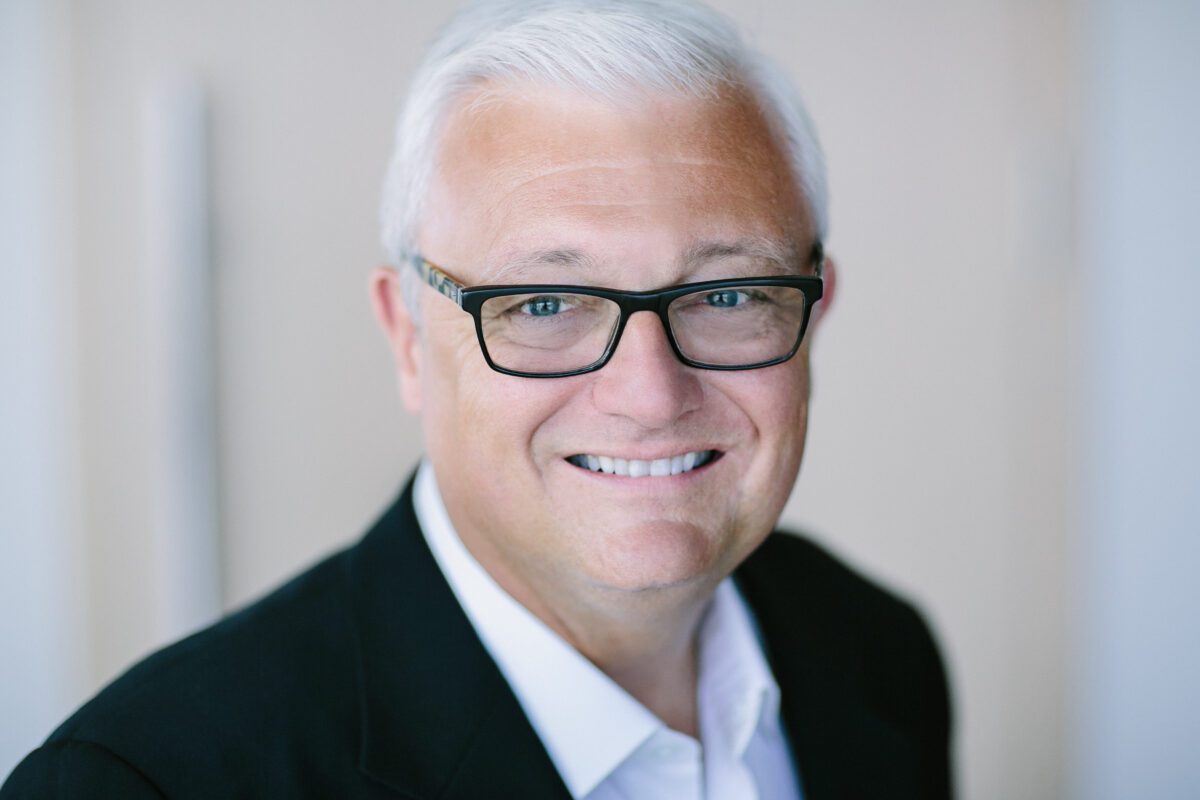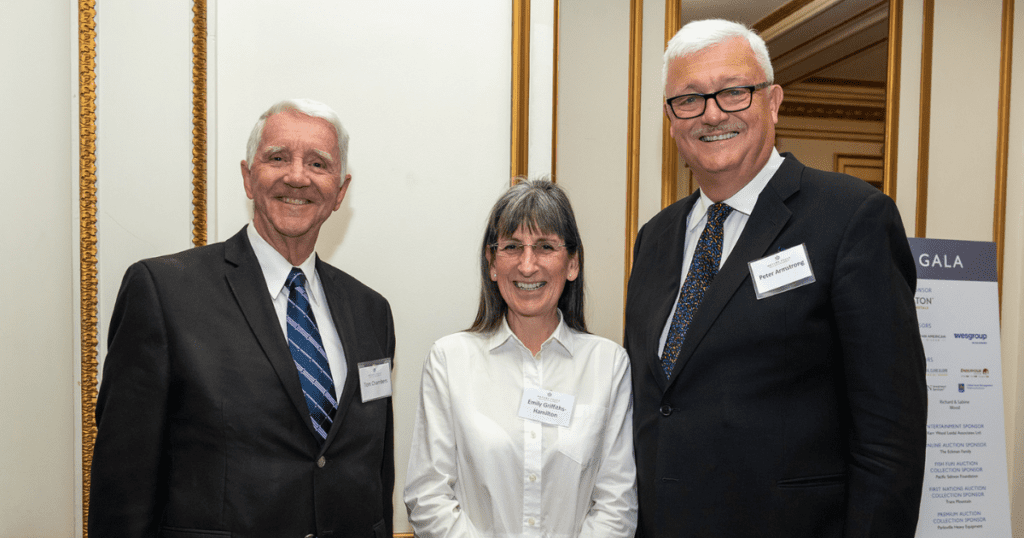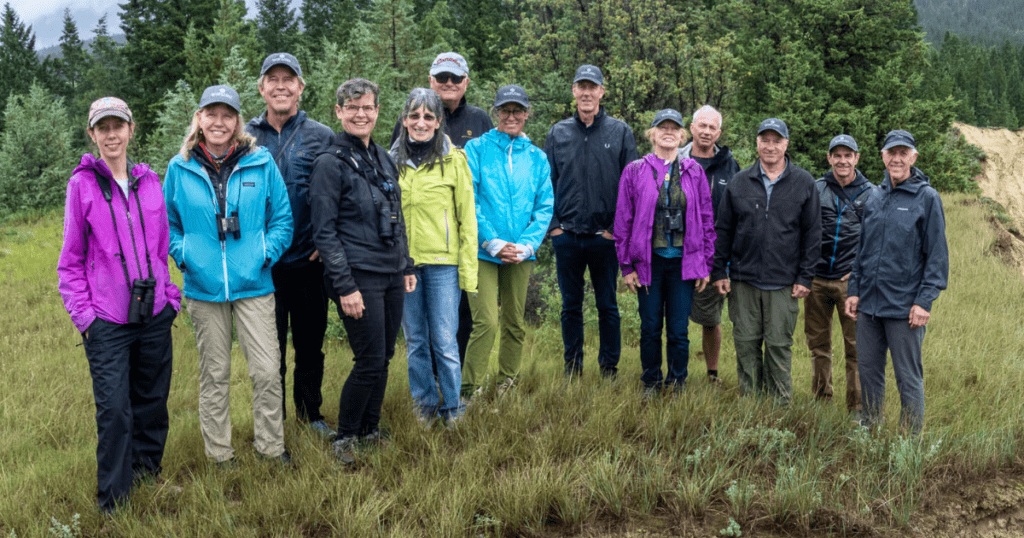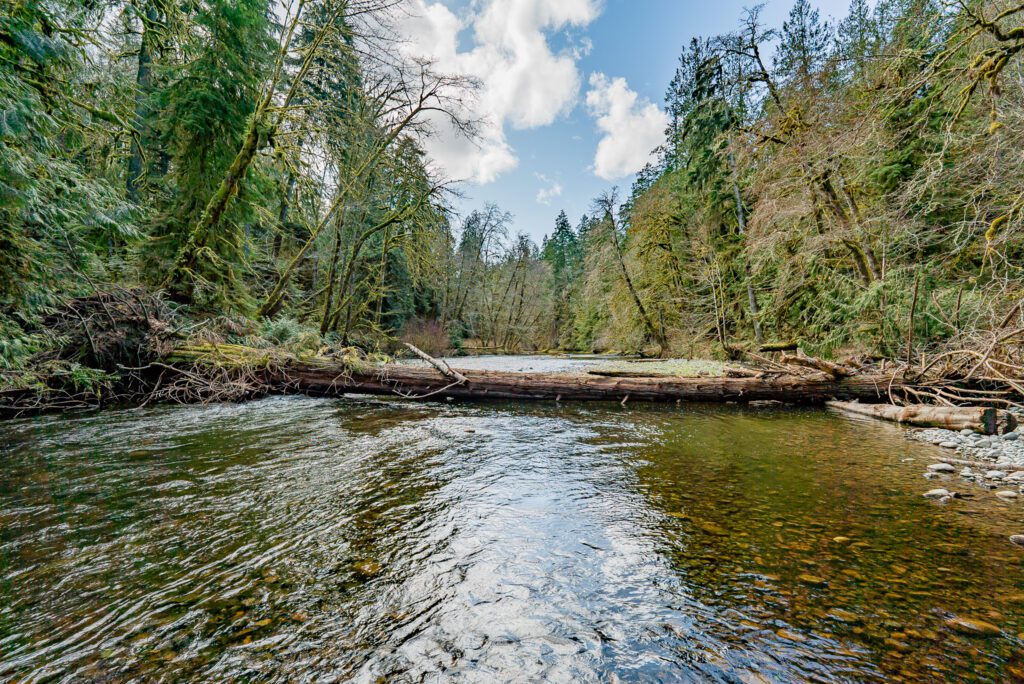
In June, acclaimed entrepreneur and visionary Peter Armstrong stepped into the role of Chair of the volunteer Board of Directors of The Nature Trust of British Columbia.
Peter is known as the founder of the Armstrong Group and the owner and operator of the award-winning luxury train company Rocky Mountaineer. He also has interests in Alder Bay Private Equity and Invictus Properties, a real estate holding company, as well as numerous holdings in the travel and tourism sector.
He was inducted into both the Business Laureates of B.C. Hall of Fame and the Canadian Railway Hall of Fame. His many awards include the Ernst & Young’s Entrepreneur of the Year Award for Tourism and Hospitality and the Queen’s Silver and Golden Jubilee Medals for contributions to Canadian communities. Peter is a graduate of the Harvard Executive MBA program and is an Honorary Fellow of the Sauder School of Business.
We recently sat down with Peter in his office overlooking Vancouver’s skyline where he shared his thoughts about The Nature Trust of BC and his leadership of the Board with a clear focus and a self-deprecating sense of humour. While he acknowledged receiving many accolades, he made a point of how lucky he’s been, well supported by many people inside and outside his different businesses, and how blessed he is, noting that he’s at a time in his life where he cares deeply about opportunities to do good and the kind of legacy he will leave his four children and seven grandchildren.

Peter Armstrong (far right) at The Nature Trust’s 2022 Gala, joined by Emily Griffiths-Hamilton and Tom Chambers.
You’ve played key roles in many non-profit organizations. How did you become interested in and a supporter of The Nature Trust of British Columbia?
Through a number of different avenues. One avenue was through my involvement with the Friends of Savary Island’s efforts to protect 350 acres in the centre of Savary Island from development. The Nature Trust of BC had previously acquired a 50 per cent interest in this land. Through the efforts of The Friends of Savary, the Savary Island Land Trust, and the community, The Nature Trust was able to acquire and conserve the remaining 50 per cent. It was an arduous effort but everyone came together to raise the money to make it happen.
A lot of people I admire have been associated with The Nature Trust and see the value in its vision. Through mutual friends I also knew Jasper Lament when as a young man he spent summers on Savary Island. I was impressed with him long before he became well educated, well skilled and the CEO of The Nature Trust.
You’ve been a member of the Board of Directors of the Nature Trust of BC since 2019. What’s top of mind for you as Chair of the Board?
I’m assuming that role on top of many very big shoulders. I recognize the 50 plus years of incredible work that has gone on. I want to honour and respect the vision of the founders and adapt it to modern situations. With the staff and Board we all hope to leave a legacy that people will say, “Those two years I was Chair weren’t so bad.” I admire the team we have. We have a dedicated staff and we have incredible people on our Board who are very knowledgeable and passionate about what they do.
I really admire the founders of Nature Trust. They saw that you need to combine a number of skillsets to be successful in what we’re trying to accomplish. One of them is to buy land based on its ecosystems; large parcels that are meaningful.
This is where the scientific community and our Board members come together to assess the value of the land based on what we want to achieve. The scientists might pass on a property or they might turn to the Board and ask us to find the resources to buy a property and to structure the purchase on the business side. It’s a wonderful combination that works and it’s one of the legacy gifts the founders have given us.
During my time on the Board, I want to be a good steward of what’s been created at The Nature Trust; to make sure we don’t risk anything, that we’re prudent, and that we make good buying decisions because our donors depend on us to do that. We are conservative in our financing and we have a very good investment fund. It creates a confidence level. We are going to raise money and we are going to do things. We’re agile. And we want to grow.

The 2023 Nature Trust of BC Board of Directors
How much of your entrepreneurial strength and knowledge will you bring to your role as Chair of The Nature Trust Board?
Probably not much. I do get excited and passionate about interesting projects. I’ve been very lucky in my life. Because of the time I was born, I didn’t have to serve in a war, I’ve had no serious health issues, I have a loving family around me. I’ve been very blessed. I have a successful business and I’ve got great employees. I’m transitioning to the next generation and now it’s time to do something good, something that years from now my grandchildren can tell their grandchildren that I helped.
What kind of challenges do you see ahead for land conservation?
When I was born we were a country of about 20 million. Now we’re a country of almost 40 million and the habitable areas of Canada are also where wildlife want to live. We have lots of space but we have to figure out how we’re going to share it.
The Nature Trust has 500 properties in BC and they all have different kinds of pressures on them. The public is now moving closer to our properties and sometimes people think the land is a park. But conservation land is different from parks. We want to try to conserve land and part of that is restricting some of its uses. We’re going to have to constantly manage that. We can’t abandon the land.
It’s also a challenge to get our message out that we’re a non-profit organization that acquires and conserves ecologically significant private land in BC. I remember one of my marketing professors at UBC saying McDonald’s has to keep telling people they make hamburgers because people forget and that if you’re not reminding people about what you do they’ll forget you. We have to keep telling people what we do through all the different communication channels we have today.

The Nature Trust of BC’s most recent acquisition, which protects 36 acres of undeveloped land along the Little Qualicum River.
How would you describe your vision for The Nature Trust?
It’s not one person’s vision. It’s the vision of the Board and the staff coming together, not my vision. And it’s the vision of the founders. You may need to tweak things to be good stewards of what we’ve created but the Board, with management’s help, needs to constantly remind ourselves of what our collective vision is. And we need try to be good stewards of what we have. And part of being a good steward is to keep growing.
We’re refreshing our strategic plan and looking at best practices. I want to hear from others about their experiences. I’m shameless. If someone has a better idea, let’s hear it, let’s talk about it and see if maybe it will work for us. Who can we partner with? I’ve with met with Jennifer Morris, CEO of The Nature Conservancy, a global conservation organization based in Arlington, Virginia, and we’ve agreed to get together to talk.
Do you have some key goals as you prepare to lead the Board?
Most importantly, I don’t want to screw up. I want to make sure that in my eight years with The Nature Trust I contribute something. I’m proud of my connection with it and I want the Nature Trust to be successful. To do that I’ve got to make everybody in the organization successful – to make every staff member, every board member, every donor and every contributor feel successful. I’m excited about the opportunity and I’m terrified by the responsibility.
This interview has been edited for clarity and space.

